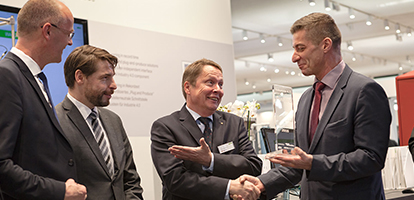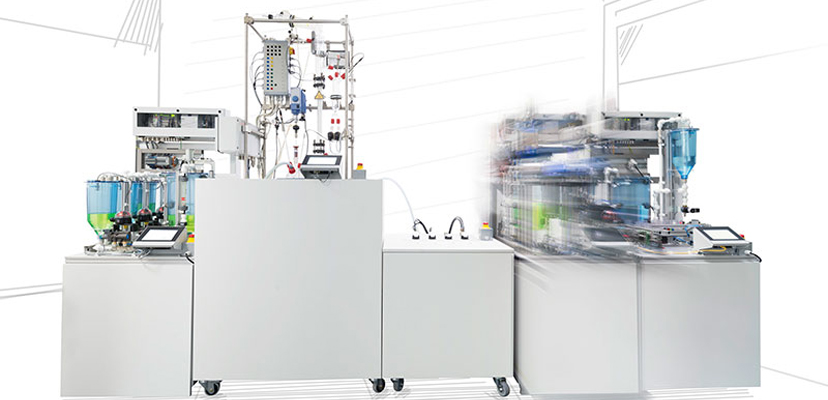


With DIMA (Decentralized Intelligence for Modular Applications), WAGO has developed a concept that supports the highly adaptable production processes required by Industry 4.0. For its revolutionary approach, WAGO was recognized as an industry leader with the “Industry 4.0 Innovation Award” bestowed by the VDE (German Association for Electrical, Electronic & Information Technologies) publishing house in cooperation with ZVEI (German Electrical and Electronic Manufacturer’s Association).
“Due to globalization and customization, products have to be developed and manufactured more quickly. Today’s production systems are, however, limited in their ability to handle this type of manufacturing. What is needed are production systems that are dynamically adaptable. They can be implemented using modular production systems; however, this also requires modular automation. Yet up until now, there has not been any manufacturer-independent solution. The automation system had to be individually and manually programmed. With DIMA, we show how easily modular systems can be automated without extensive effort,” explains Ulrich Hempen, Head of Market Management Industry & Process at WAGO.
A five-person expert jury consisting of Angelo Bindi (Deputy Director Industrial Engineering, Continental Teves), Gunther Koschnick, (Managing Director of the Automation Association, ZVEI), Dr.-Ing. Olaf Sauer (Deputy Institute Director, Fraunhofer IOSB), Prof. Dr. Dr. h.c. Detlef Zühlke (Scientific Director and Head of Innovative Factory Systems, DFKI), and Ronald Heinze, (Verlagsjournalter, VDE VERLAG) selected DIMA as one of the 10 top products out of almost 50 submissions. This was followed by nationwide online voting sponsored by the VDE publishing house, in which WAGO’s DIMA concept received the most votes.
“User and manufacturer response to our concept has been very positive. The fact that we came out on top in this high-caliber competition with DIMA is further proof that we are on the right path toward Industry 4.0 with our modular, open automation approach,” emphasizes Ulrich Hempen. The “Industrie 4.0 Innovation Award” is not the first award that this concept has received. DIMA has already won the “Achema Innovation Award” from the industrial magazine Process, and the “atp award” from the “atp edition” publication. It has also recently won internationally, receiving the “Food Processing Award” from the British food and beverage industry.
About DIMA
The basic idea of this modular system architecture: Combine properly equipped modules with integrated automation into an overall system with minimal effort. The manufacturer provides the fully automated module. Engineering for the entire system then consists solely of assembling modules and connecting them to the production control level.
With DIMA, which is based on the NAMUR “NE 148” recommendation, WAGO has introduced a solution for modular automation with decentralized intelligence. The essential advantages for users are found in the system’s open architecture. This method allows intelligent production modules to be flexibly integrated into or decoupled from a running system. In addition, DIMA enables cost-effective design of the entire system since communication between the higher production control level and the decentralized module occurs via manufacturer-neutral semantics.
DIMA shifts large parts of the control intelligence to the modules. These function as services that can be accessed by other communication users via a unified interface. The process for announcing the services and operating images is not based on proprietary solutions, but rather, is performed via MTP (Module Type Package). It serves as a digital description of a system module and contains all the information required for integrating the module into the system and for operating it. This makes it possible to integrate a module, which is completely unknown to the higher production control level, within a few minutes.
Text: Tina Nolting I WAGO
Foto: WAGO